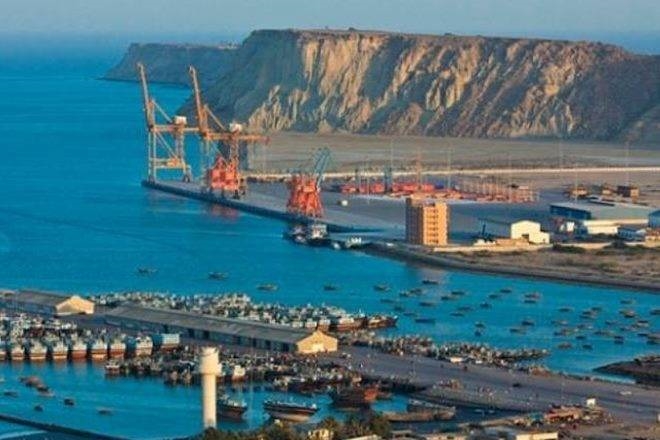 WASHINGTON: The US’ decision to exempt India from imposition of certain sanctions for the development of the strategically-located Chabahar Port in Iran, along with the construction of the railway line connecting it with Afghanistan, has been welcomed by prominent think tanks here as a “right call”.
WASHINGTON: The US’ decision to exempt India from imposition of certain sanctions for the development of the strategically-located Chabahar Port in Iran, along with the construction of the railway line connecting it with Afghanistan, has been welcomed by prominent think tanks here as a “right call”.
The decision taken on Tuesday by the Trump administration, which a day earlier imposed the toughest ever sanctions on Iran and is very restrictive in giving exemptions, is a seen as a recognition by Washington of India’s major role in the development of the port on the Gulf of Oman, which is of immense strategic importance for the reconstruction of war-torn Afghanistan.
“This was the right call. India’s ability to not just continue its development assistance to Afghanistan but also to scale up, will be vastly enhanced by the development of the Chabahar port,” Alyssa Ayres, a senior fellow for India, Pakistan, and South Asia at the Council on Foreign Relations think-tank, said.
Ayres, who had worked in the State Department in the Obama administration, said as Kabul and New Delhi seek ways to increase trade connectivity for Afghan exporters to the enormous Indian market, an overland and sea supply chain will be helpful as everything cannot be exported economically via air freight.
“Increasing opportunities for economic activity in Afghanistan will be crucial for the country’s stability, and India is the most important economy in the region to provide that ballast,” she said.
According to Anish Goel, who was part of the White House’s National Security Team during the Obama regime, the exception for the Chabahar port is a reflection of the “competing priorities at play”.
“As much as the (US) administration wants to squeeze and isolate Iran, it also does not want to do anything to damage or restrict the ongoing efforts in Afghanistan. The port, when finished, will be vital for shipping goods to Afghanistan,” he said.
“But it is clear that the exception was written to be as narrow as possible and focus only on those activities that will be beneficial to Afghanistan,” Goel added.
The Chabahar Port is considered a gateway to golden opportunities for trade by India, Iran and Afghanistan with central Asian countries besides ramping up trade among the three countries after Pakistan denied transit access to India.
The exemption provided to India is a much welcome and necessary step in the right direction, noted Bharath Gopalaswamy, director of the South Asian centre in the think-tank, Atlantic Council.
The exemption underscores that the US understands the opportunities that India offers by being an important partner and player in the region, he said, adding, “This was the right step in the right direction.”
“Trump administration made the right move by exempting India for the development of the Chabahar port,” Jeff Smith of the Heritage Foundation told PTI.
India, Smith argued, “made a convincing case” that its principal interest in the port was to develop alternative infrastructure links to Afghanistan that bypass Pakistan, which also serves the US national security interests.
“Combined with the importance, this administration places on developing good ties with India, there was a compelling geopolitical case to be made for a waiver,” he said.
Rick Rossow of the Center for Strategic and International Studies said: “Chabahar’s role to transport key logistics to Afghanistan will continue to grow over time. So this waiver is squarely aligned with the US interests.”
In May 2016, India, Iran and Afghanistan inked a pact which entailed establishment of Transit and Transport Corridor among the three countries using Chabahar Port as one of the regional hubs for sea transportation in Iran, besides multi-modal transport of goods and passengers across the three nations.
The port in the Sistan-Balochistan province on the energy-rich nations southern coast is easily accessible from India’s western coast and is increasingly seen as a counter to Pakistan’s Gwadar Port, which is being developed with Chinese investment and is located at distance of around 80 km from Chabahar. PTI





